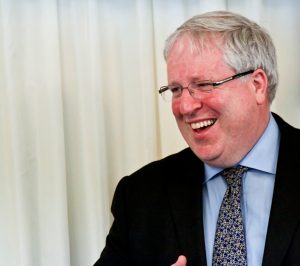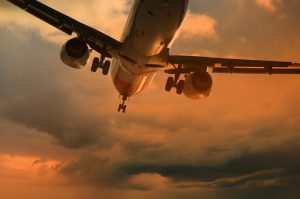Airlines UK Annual Dinner – speech delivered by Chairman Jane Middleton
Minister, ladies and gentlemen, welcome to the 2019 Airlines UK Annual Dinner. For those of you who I have not yet met I’m Jane Middleton, Chairman of Airlines UK. I would like to start this evening by thanking Thales UK and CargoLogicAir for sponsoring our event and making this evening possible.
Late last year we launched a new Gold level of Associate membership and I am delighted to welcome our first two Gold members – Thales UK and Farnborough International Ltd and we look forward to working with them in the year ahead.
I would also like to thank the Minister for Aviation Baroness Sugg for joining us as our keynote speaker – and for the tremendous impact she has had on our sector since taking the role.
I would like to take a moment to say thank you to someone who has made a huge contribution to our sector over the years and will be sorely missed when she leaves the DfT in April. Lucy Chadwick – I’d like to thank you for all your support.
Minister, as you know, delivering for the consumer is at the heart of any airline business. Unlike other travel sectors, airlines are privately funded and privately operated whilst competing in a global market. With unprecedented levels of consumer choice expectations continue to rise and our customers now have access to more information than ever before allowing them, quite rightly, to demand more from airlines. The provision of a quality experience is of great importance and is a responsibility our members take very seriously – as supported by growing passenger numbers and successive CAA passenger satisfaction surveys.
You will also appreciate airlines cannot put on new routes and destinations bringing down the cost of travel and connecting our cities and regions, whilst our largest airports are constrained and smaller ones remain unviable for carriers to operate from.
The great paradox in the UK is that despite passenger numbers increasing to record levels, direct connectivity has actually gone down. We are the only country in Europe where this has happened. The lack of capacity at Heathrow and Gatwick has clearly played a role in this but so too has an airline cost base that makes it ever harder to sustain new routes and utilise spare capacity.
Almost 12 months to the day since the collapse of Monarch, Primera another operator with a large UK presence ceased operations. We were proud of the swift response from UK airlines in offering rescue fairs to bring stranded passengers home but the loss of Primera demonstrates that despite recent falls in fuel costs, it remains a struggle for too many airlines to operate profitably. Fare reductions and the ongoing weakness of sterling are clearly part of the reason – but so too is the impact of increased taxes, infrastructure costs and regulation.
The Aviation Strategy represents a unique opportunity to make a truly positive case for growth in our industry and airlines look forward to working in partnership with Government to ensure this can be delivered sustainably nationwide. However, the Strategy will fail if we fall into the trap of taking this growth for granted and our long-term prosperity will not be achieved if the UK becomes ever more uncompetitive in the global aviation market.
My comments are relevant for air freight operators as well as passenger carriers. An Airlines UK report published last year showed the UK is more dependent on air freight services than any of our EU competitors, and that across the economy just over £87 billion of GVA is directly dependent on air freight exports. It is not surprising that countries with better links to growing destinations trade more with those markets making cargo an issue of national strategic importance. So with the right support through the Strategy, and a Brexit outcome that recognises how modern air freight operates across Europe, this sector can play its full part in helping enable the UK to meet its ambitious export targets. Equally we must not forget the important role night flights play in next day delivery and ensuring the competitiveness of UK Plc.
Minister, alongside the Secretary of State you deserve enormous credit for securing parliamentary approval for a new runway at Heathrow – something history has demonstrated is no easy feat. Everyone in this room now needs to come together to ensure that this once in a generation infrastructure project is delivered.
However, as we and others, including the Secretary of State, have said right from the start, these advantages will only be achieved if Heathrow – overseen by the CAA – deliver a scheme that is and remains affordable, including passing the exam question of keeping charges at current levels.
I make no apology for repeating myself when I say our members are clear that airline backing remains conditional upon a scheme that delivers on this affordability promise. We therefore have two requests. Firstly, to Heathrow, as we remain committed to working together we ask for and expect meaningful consultation on your plans, particularly during this critical stage. For us this means engaging fully and responding to airline feedback whilst ensuring the timely and adequate provision of information. And most importantly, scheduling a time in the near future when airlines will be fully informed of all the facts and costs, enabling them to assess the case for themselves.
Our second request is to the CAA. We know you appreciate your role as a strong and effective regulator of Heathrow. Airlines are committed to working with you to explore opportunities presented by expansion and to deliver a better Heathrow but we cannot do this alone. We look to the CAA – and Government – for acknowledgement that in reality carriers act as a proxy for the consumer. If charges end up rising to pay for a new runway we risk not being able to deliver the step change in connectivity and competition that Britain needs now more than ever before.
Looking beyond Heathrow, we are pleased that Ministers have expressed support for all airports making best use of existing runways. This must run alongside the expansion of Heathrow, and not just be seen as a sticking plaster applied until the third runway is built. The airline business model is not a complicated one. Our members will cater for demand in air travel, where and whenever this may arise and we endorse the recommendation for a future aviation growth framework that accommodates additional runways beyond 2030.
Whilst in principle we will support the unlocking of new capacity – we do not support the Government picking winners in aviation. Business cases must be proven, funding secured, and a commitment made that passengers will not be asked to foot the bill through higher charges whilst ensuring operational resilience remains effective.
The Government is right though to set industry the challenge of ensuring any future expansion can be delivered sustainably. Airlines are rightly proud of their efforts around sustainability having introduced >470 new aircraft into service since 2005 at an investment cost of over $49 billion. We are now starting to see a disconnect between aviation growth and noise so whilst we have a 13% increase in passengers, we see 12,000 fewer people being seriously impacted by noise. It’s the same story with carbon – between 2010 and 2016, passenger numbers in the UK grew by 27%, while total emissions only grew around 0.2%. These are facts that industry and Government must continue to champion.
Continued progress in these areas will depend on Government and industry working together. Ministers have an important role to play in encouraging investment in sustainable aviation fuels and new technologies. And of course – remaining steadfast in their support for airspace modernisation.
Airspace modernisation has been a key industry ask for a long time now and we are pleased that you, Minister, are committed to providing the political leadership to make it a reality. As we all know this has not always been the case and without central Government setting out the strategic rationale for why modernisation is so important it will fail. Following your leadership it is now up to the sector to come together to design, implement and deliver a programme that is co-ordinated and works for the whole country. I can assure you that the airlines are signed up 100% to making this a success and we will work collaboratively across the sector to make it happen.
With 58 days till Brexit it will come as no surprise that I mention it here tonight. There is lot of noise and speculation around this topic – but what do we actually know about where we are with the negotiations? We know that the UK Government and EU Commission have said even in the event of no deal air services between the UK and the EU will continue. We also know the UK Government has already signed 11 of the 17 third country agreements needed to maintain connectivity after Brexit. We continue to seek clarity on some elements of the Commission’s no-deal Regulations – in particular the proposed capacity cap and the long-standing commercial practice of code sharing agreements, as well as aircraft leasing and chartering – and we do not support a no-deal Brexit. All that said while we are far from complacent for airlines it remains very much business as usual with tickets on sale and consumer sentiment remaining buoyant.
In summary, it is important that we should never lose sight of the value of aviation. The coming year is a crucial one for the future of our industry and we expect everyone within the sector and the Government to play their part and to be accountable to the ultimate end user – the consumer!
I would now like to introduce Steve Murray the VP Strategy & Marketing for Thales UK




 BATA has also been busy in doing this by highlighting in the media and with officials and politicians a wide range of issues from aviation taxation to train services to airports. BATA is also a resource that stands ready to assist members whether by supplying research, additional lobbying effort or, most effectively, by acting as a focal point for the UK airline industry to speak with one voice.
BATA has also been busy in doing this by highlighting in the media and with officials and politicians a wide range of issues from aviation taxation to train services to airports. BATA is also a resource that stands ready to assist members whether by supplying research, additional lobbying effort or, most effectively, by acting as a focal point for the UK airline industry to speak with one voice.